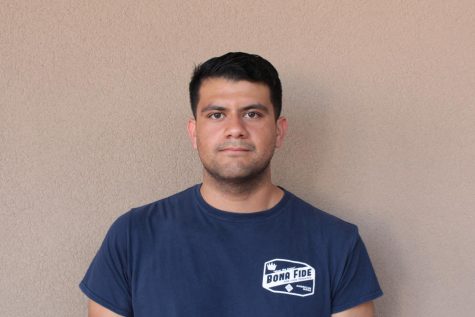Disgraced Former Leader Subject of New Documentary
Netflix’s “The Rachel Divide” provides discussion in the former NAACP chapter president who falsely presented herself as black
Netflix’s ‘The Rachel Divide’ takes on the controversial debate of Rachel Dolezal’s racial identity, but the documentary only proves there is no dispute of her race, but in her delusional ego.
In 2015, Dolezal was approached by KXLY-TV reporter Jeff Humphrey. Humphrey held up a photo of Albert Wilkerson, a black man Dolezal claimed was her father on a Facebook post shared on the Spokane National Association for the Advancement of Colored People (NAACP) page.
Humphrey asked if the man in the photo was her father, “Yeah, thats dad” she answered on the KXLY-TV interview. But when asked if she was African American she replied “I don’t understand the question.” She evacuated the interview immediately.
Dolezal was outed by her biological parents Larry and Ruthanne Dolezal.
That same year, Dolezal was denounced president of the NAACP. Her position as chair of Spokane’s police ombudsman commission was revoked, and she was also dismissed as an instructor in Africana studies at Eastern Washington University.
Two years later, Dolezal finally admitted to being born biologically white on The Real, while promoting her autobiography “In Full Color,” but specified, “I don’t identify as African-American, I identify as black.”
In an interview with The Guardian in 2017, she said, “I don’t think you can do something wrong with your identity if you’re living in your authenticity.” Dolezal continued, “I’m not going to stop and apologize and grovel and feel bad about it.”
The Documentary follows a pregnant Rachel Dolezal in her now enclosed life, living in her modest Spokane home with her adopted son Izaiah, 21, and biological son Franklin, 13.
The film exposes Dolezal being harassed daily and photographed by civilians and media outlets anytime she’s in the public eye.
But it’s her teenage son Franklin that seems to be the real victim in the documentary. His refusal to be seen with his mother is heartbreaking, but understanding to the viewer.
Franklin is aware of his mother’s devotion to her self-proclaimed blackness. Throughout the film, you can see his suffering and aggravation with the situation.
“I have to admit, I’m running out of patience for this, the one thing that will make everyone happy is if she [his mom] said ‘Hey, im white,’ but you can’t tell my mom what to say.” said Franklin in an interview.
The film highlights her close relationship with her kids and devotion to African American fashion and art. She wears her hair in elaborate dreadlocks most of the time in this film and sometimes sports a curly wig. Her hairdos are so over-the-top that they look like they were meant to attract attention.
Dolezal comes off egotistical and sociopathic. She refuses to admit she lied or misled people to believe she was African American and uses her current situation as a tool to identify even more with the black community, claiming she is being “oppressed.”
“I just want to be free,” Dolezal says throughout the film.
In her book she compares her childhood struggles, such as growing up with strict Christian fundamentalist parents to slavery.
It seems Dolezal hasn’t realized what the public’s issues are with her racial choice, and the problem is that race is not a choice.
There’s nothing wrong embracing a cultures style, music, and clothing. But
“I usually picked a brown crayon rather than a peach one. Peach simply didn’t resonate with me,” Dolezal claims in her book. “I felt black and saw myself as black.”
Rudy Guijarro can be reached at [email protected]

